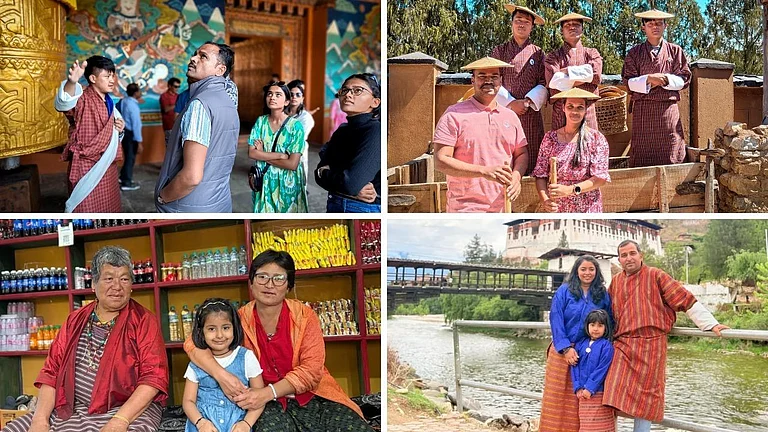India has emerged as one of the attractive destinations when it comes to organ transplantation, offering a vital lifeline to patients with end-stage diseases when other treatments prove to be ineffective. With advancements in medical technology, the demand for organ transplants has surged globally. This demand has created a unique synergy with medical tourism, as countries invest in healthcare infrastructure to offer affordable and advanced organ transplant procedures to international patients. Although the concept of organ transplantation dates back to the 16th century, it wasn't until 1990 that an effective process was developed, drastically increasing patient life rates. Dr. Thomas Murray won the Nobel Prize in Medicine for completing the first successful kidney transplant between identical twins, which resulted in the recipient living eight years with normal graft function. Since then, the area of organ transplantation has improved dramatically, especially in recent decades. Here’s a deep dive into the current landscape and future of organ transplants within medical tourism.
Organ transplantation from the context of medical tourism
Medical tourism, especially in the context of organ transplants, is driven by patients who travel to other countries for life-saving treatments unavailable or unaffordable in their home countries. This trend has increased over the last decade due to the growing disparity between the demand and supply of donor organs and the availability of high-quality medical care in certain regions at a fraction of the cost. For example, live donors were transported from the Republic of Moldova to the United States and from Nepal to India. In other circumstances, both beneficiaries and donors from different countries transfer to a third country, which violates the regulatory framework of their countries of origin.
According to a report by United Nations Abidemi Ogbonna of Lagos, Nigeria, she decided to visit a neighboring hospital called Apollo three years ago because she urgently required a kidney transplant. The doctors there suggested her to visit India for a successful procedure. The Apollo Hospital in Nigeria coordinated a surgical date with its counterpart in India, assisted Ms. Ogbonna obtaining a visa, and booked her travel and accommodations in India. There are hundreds of stories and Ms. Ogbonna's one where she saved her lives with affordable treatments. There are hundreds of Africans who seek medical assistance outside of their own countries every year.
In India, the Transplantation of Human Organs and Tissues Act (THOTA), 1994, and its Rules govern organ and tissue donation and transplantation. Organ transplants require a medical visa for both the donor and recipient. Three criteria will determine the future of organ replacement. The first variable is the necessity, specifically how many organs will be replaced over time. The second factor is the variety of applications and new technology that will be accessible to replace those organs. The third variable is the set of biological and societal barriers to organ replacement. This communication will summarize our thoughts on how these variables might alter shortly.
A recent report said Kerala's ambitious ambition to create the country's first organ and tissue transplant center at Rs 558.68 crore in Kozhikode gained cabinet approval, brushing aside reservations voiced by the Finance Department and the chief secretary. According to the cabinet meeting, 90% of transplants in Kerala are performed in the private sector, with the majority of beneficiaries dying due to financial constraints. The proposed center intends to provide low-cost organ transplants, create jobs, and provide healthy organs from deceased individuals to patients.
Current Trends in Organ Transplant Medical Tourism
Countries with developed transplant programs, such as India, Turkey, Mexico, Spain, the United States, etc are emerging as medical tourism hotspots. These countries offer competitive rates, skilled surgeons, and technologically advanced facilities that attract thousands of patients annually. Common procedures within organ transplant tourism include Kidney transplantation, which dominates medical tourism as kidney disease prevalence continues to rise globally. The average cost of a kidney transplant in India is around 5 lakh to 15 lakh while the same procedure cost in the US will be $442, 500 which makes foreign patients opt for medical tourism.
According to a report in the Economic Times, Dr Subhash Gupta, liver transplant surgeon and chairman of the Max Centre for Liver and Biliary Sciences, stated that "nearly 30% of patients undergoing liver transplant at our centre are foreigners."
Liver transplant is another trend in which many patients with end-stage liver diseases seek transplants abroad due to a shortage of donor livers in their home countries. India is quickly becoming a hotspot for medical tourism for all types of healthcare treatments, allowing countless Indian hospitals to welcome patients from all over the world. Indian hospitals are seizing the opportunity to give the highest quality healthcare to those in need. The cost of a liver transplant costs around $40000 to $ 300000 in the United States while the same procedures in India will cost around 20 lakh to 30 lakh. With shorter wait times and a higher availability of donors, corneal transplants have become increasingly common in medical tourism.
According to the Lancet Regional Health Journal, 2024-India performs 17,000-18,000 solid organ transplants every year, the highest in the world after the United States and China, but still trails numerous high-income countries in transplantation rates per million people (0.65). Progress has been made in this area, including improved organ harvesting from deceased donors, with the average number of organ transplants per donor rising from 2.43 in 2016 to 3.05 in 2022. However, the majority of these surgeries are performed by the country's private health system, making them unaffordable for the majority of patients.
Innovations Shaping the Future of Organ Transplants in Medical Tourism
Several transformative innovations promise to reshape the organ transplant landscape, potentially addressing ethical concerns and improving patient outcomes.
3D Bioprinting and Artificial Organs
It sounds amazing, that 3D printing has been used to create multi-layer skin, bones, muscular structures, blood vessels, retinal cells, and even miniature organs. While these technologies are not yet fully commercialized for human use, the future of 3D-printed organs is bright and may provide a safer, more ethical alternative to traditional donor organs.
Stem Cell-Based Organ Generation
Stem cell therapy is another promising field that can revolutionize organ transplants. Scientists are using stem cells to grow organs in laboratories, an approach that could eliminate the need for donors entirely. This technique could allow patients to have organs grown from their cells, reducing rejection risks and the need for lifelong immunosuppressive drugs.
Xenotransplantation
Xenotransplantation, or the transplantation of animal organs into humans, is another frontier in organ transplant research. In theory, xenotransplantation might provide a plentiful, low-cost, and physiologically acceptable replacement for the primary parenchymal organs. With advancements in genetic engineering, scientists are making strides in reducing organ rejection rates by modifying animal organs to be more compatible with human physiology. This development, however, is still under heavy ethical and regulatory scrutiny.
Blockchain for transparent organ matching and tracking
Blockchain technology can improve transparency and traceability in organ donation, helping track the origin of organs and ensure ethical sourcing. A transparent ledger system could prevent illegal organ trade and build trust among patients traveling internationally for transplants.
AI-Driven Organ Matching
Artificial Intelligence (AI) algorithms can enhance the organ-matching process by analyzing complex genetic data to find the best donor-recipient pairs. By optimizing matches, AI can reduce rejection rates and improve transplant success, making transplants safer and more accessible for medical tourists.
Challenges in organ transplantation
Organ transplantation involves a number of obstacles, including organ scarcity, compatibility issues, and the possibility of rejection. In many countries, the demand for donor organs far outstrips the supply, resulting in long wait times and, in some cases, death before a suitable organ is available. Furthermore, maintaining compatibility between donor and recipient tissues is critical for avoiding rejection and increasing transplant success rates.
Geographic distribution and data insights:
The findings give information on the geographical distribution of foreign transplants in India. Delhi had the most cases (1,445), followed by Rajasthan (116), and West Bengal (88). States including Uttar Pradesh, Telangana, Maharashtra, Karnataka, Gujarat, Tamil Nadu, and Manipur also contributed to the total count, albeit in lower numbers. Notably, Delhi-NCR accounted for approximately 78% of all foreign transplants, with more than 32% of total transplants in Delhi involving foreign nationals.
Organ transplant medical tourism is rapidly evolving, fueled by innovation, global demand, and advancements in healthcare. Traveling for organ transplantation provides hope and opportunities for patients with end-stage organ failure. Patients who choose top worldwide destinations with established transplant programs might benefit from high-quality care, suitable donor organs, and competitive prices, increasing their chances of a successful transplant outcome. This fusion of technology and healthcare ethics is set to make life-saving transplants more accessible to patients worldwide, ushering in a new era of global healthcare transformation.



























